Brought to you by:
• Orb—The flexible billing engine for modern pricing
• Eppo—Run reliable, impactful experiments
• Paragon—Ship every SaaS integration your customers want
—
David DeSanto is the chief product officer of GitLab, which is the largest remote-only company in the world. They share many of their team meetings on YouTube, and they’ve grown from being an open-source code management product competing with GitHub to a multi-product platform that covers security, compliance, continuous integration, project management, and deployment tools, many of which are infused with AI magic. In our conversation, we discuss:
How GitLab operationalizes transparency
The philosophy behind recording and sharing team meetings on YouTube
Their extensive public employee handbook
GitLab’s core value of having “short toes”
Challenges and advice for doing remote work well
Strategies for ensuring effective communication in a remote work environment
GitLab’s breadth-over-depth strategy
The company’s unique approach to AI
The value of using humor in high-stakes conversations
Some takeaways:
GitLab aims to be open about as many things as possible. The company shares internal meetings on YouTube, maintains a public issue tracker for projects, and provides a 2,000-page handbook detailing their operational procedures. This dedication to transparency has enhanced user trust and encouraged community engagement, retention, and growth.
In an all-remote culture, GitLab promotes overcommunication to maintain clarity and cohesion among team members. Clear, concise, and constant communication helps prevent misunderstandings and ensures that everyone is on the same page despite the lack of in-person interaction.
GitLab’s feedback approach:
Having “short toes”: GitLab emphasizes the importance of separating personal identity from professional output when receiving feedback. This concept encourages people to approach feedback with an open mind, focusing on collaboration and growth rather than defensiveness. By embracing constructive criticism as an opportunity for improvement, teams can foster an environment conducive to innovation.
Private delivery of negative feedback: GitLab advocates for delivering negative feedback in one-on-one settings rather than public channels. This approach promotes respect and professionalism, ensuring that constructive criticism is provided in a manner that preserves the recipient’s dignity. It also allows for meaningful dialogue and follow-up discussions to address areas of improvement effectively.
Kindness is a core value at GitLab, woven into collaborative principles such as expressing gratitude and apologizing when necessary, and delivering constructive criticism in private rather than public channels.
Responsibility is “driven down” to GitLab’s lower levels, empowering individuals and teams to own and manage their projects. This approach fosters efficiency by streamlining decision-making and maintaining a high level of project velocity.
Listen now on Apple, Spotify, Overcast, and YouTube.
Where to find David DeSanto:
• X: https://twitter.com/david_desanto
• LinkedIn: https://www.linkedin.com/in/ddesanto/
• Threads: https://www.threads.net/@david.the.beard
Where to find Lenny:
• Newsletter: https://www.lennysnewsletter.com
• X: https://twitter.com/lennysan
• LinkedIn: https://www.linkedin.com/in/lennyrachitsky/
In this episode, we cover:
(00:00) David’s background
(04:20) Maintaining an epic beard
(05:29) Why GitLab publicly shares team meetings
(09:49) The GitLab Handbook
(11:30) GitLab’s issue tracker
(14:29) How to successfully build a culture of transparency
(18:11) Benefits of operating with transparency
(19:55) The value of building in public
(21:53) How GitLab implements their core value of kindness
(25:16) What it means to have “short toes”
(27:41) Other core values
(32:16) Common reasons for not fitting in at GitLab
(34:42) Advice for remote teams
(42:04) Advice for getting into product
(43:52) Advice for PMs who are struggling in a remote world
(48:25) Specific tools that help with remote work
(53:13) Time zones and remote work
(57:18) Breadth-over-depth strategy
(01:04:14) AI at GitLab
(01:13:11) GitLab’s products and solutions
(01:14:54) Lightning round
Referenced:
• GitLab: https://about.gitlab.com/
• UX Showcase—David DeSanto introduction to UX team and AMA: https://www.youtube.com/watch?v=fEdsmnVKNj4
• The GitLab Handbook: https://handbook.gitlab.com/
• Sid Sijbrandij on LinkedIn: https://www.linkedin.com/in/sijbrandij/
• Y Combinator: https://www.ycombinator.com/
• GitLab issues: https://docs.gitlab.com/ee/user/project/issues/
• Salesforce: https://www.salesforce.com/
• GitLab values: https://handbook.gitlab.com/handbook/values
• GitLab organizational structure: https://handbook.gitlab.com/handbook/company/structure
• GitLab direction: https://about.gitlab.com/direction/
• Dogfooding: A simple practice to help you build better products: https://medium.com/agileinsider/dogfooding-a-simple-practice-to-help-you-build-better-products-b5954af4d5f7
• The ultimate guide to adding a PLG motion | Hila Qu (Reforge, GitLab): https://www.lennysnewsletter.com/p/the-ultimate-guide-to-adding-a-plg
• Zigging vs. zagging: How HubSpot built a $30B company | Dharmesh Shah (co-founder/CTO): https://www.lennysnewsletter.com/p/lessons-from-30-years-of-building
• HubSpot: https://www.hubspot.com/
• Crossing the Chasm: Marketing and Selling Disruptive Products to Mainstream Customers: https://www.amazon.com/Crossing-Chasm-3rd-Disruptive-Mainstream/dp/0062292986
• Geoffrey Moore on finding your beachhead, crossing the chasm, and dominating a market: https://www.lennyspodcast.com/geoffrey-moore-on-finding-your-beachhead-crossing-the-chasm-and-dominating-a-market/
• Open-core model: https://en.wikipedia.org/wiki/Open-core_model
• GitLab Duo: https://about.gitlab.com/gitlab-duo/
• GitLab Docs: https://docs.gitlab.com/
• Anthropic: https://www.anthropic.com/
• GitLab Acquires UnReview to Expand Its DevOps Platform with Machine Learning Capabilities: https://about.gitlab.com/press/releases/2021-06-02-gitlab-acquires-unreview-machine-learning-capabilities/
• Essentialism: The Disciplined Pursuit of Less: https://www.amazon.com/Essentialism-Disciplined-Pursuit-Greg-McKeown/dp/0804137382
• The Mission Critical Core/Context Model for Product Managers: https://secretpmhandbook.com/the-mission-critical-corecontext-model-for-product-managers/
• The Devil’s Hour on AppleTV+: https://tv.apple.com/us/show/the-devils-hour/umc.cmc.3zw4tyzd4lvor5mwhujms63x3
• Glass Onion: A Knives Out Mystery on Netflix: https://www.netflix.com/title/81458416
• Taylor Swift’s The Eras Tour on Prime Video: https://www.amazon.com/TAYLOR-SWIFT-ERAS-EXTENDED-VERSION/dp/B0CP99SN2B
• The STAR method: https://capd.mit.edu/resources/the-star-method-for-behavioral-interviews/
• Artifact News: https://artifact.news/
• Superhuman: https://superhuman.com/
• Arc browser: https://arc.net/
• An inside look at how The Browser Company builds product: https://www.lennysnewsletter.com/p/competing-with-giants-an-inside-look
Production and marketing by https://penname.co/. For inquiries about sponsoring the podcast, email podcast@lennyrachitsky.com.
Lenny may be an investor in the companies discussed.


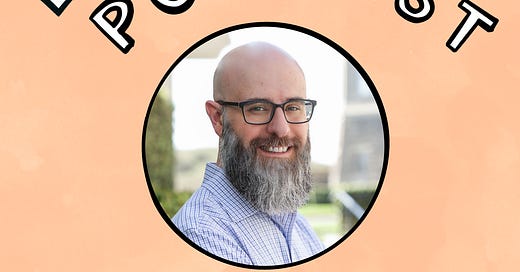
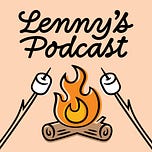



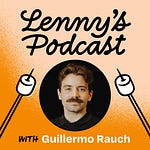
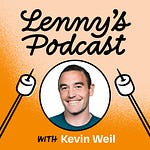

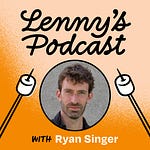
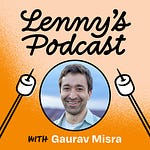
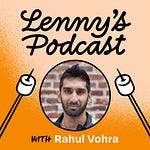
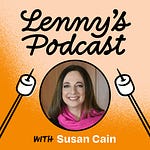

Share this post